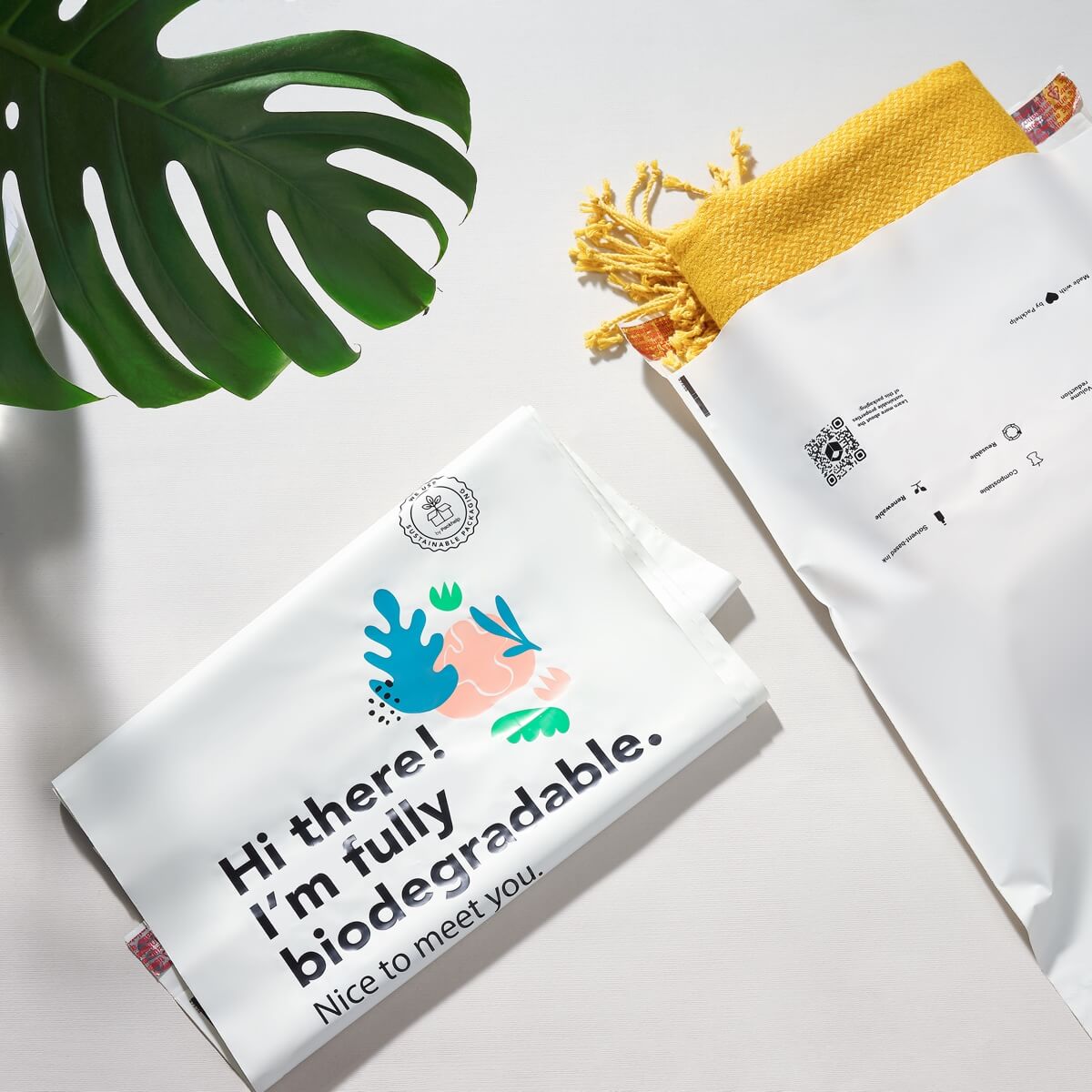Biodegradable mailing bags
Our compostable bioplastic shipping bags

We have chosen to use biodegradable mailing pouches to package your orders and we explain here why and how our pouches are made.

A demanding design
If we tell you that our pre-printed bioplastic shipping bags are biodegradable, waterproof and tear-resistant, do you believe us? Their corn starch-based design makes it the ultimate ecological packaging, while ensuring reliable protection of your products during transit.
Are pre-printed biodegradable plastic shipping bags completely waterproof?
Yes. Pre-printed biodegradable plastic shipping bags are made from corn starch. This material is ideal for serving as an extra layer of protection to prevent harsh weather from causing any damage to your package.
Is pre-printed biodegradable plastic shipping bag really eco-friendly?
The pre-printed biodegradable shipping bag is completely biodegradable . This ensures that it will quickly decompose into natural and non-toxic elements for the environment. In addition, it is industrially compostable , which means that if you have access to municipal compost you can deposit it there so that it turns into compost. Compost is a natural fertilizer used in agriculture.
Why do pre-printed biodegradable plastic shipping bags smell?
The natural materials used in our pre-printed biodegradable plastic shipping bag require a special adhesive to make them waterproof but also to be eco-friendly and able to break down into compost. This is why they may have a slight odor. Some of our customers indicate that it is a curry smell, others that it is more of a baby powder scent. It's not an offensive smell and it's not artificial.

Definition of biodegradable material
A product made from biodegradable material breaks down into natural elements found in nature when exposed to light, air, moisture and microbes.
Although technically all materials decompose, many petroleum-based plastics take thousands of years to decompose and release toxins into the soil.
Products made from “biodegradable” materials are expected to biodegrade within a single generation, leaving behind only water, carbon dioxide, naturally occurring minerals and biomass.
It is possible to compost in two ways:
- Homemade compost: food scraps, plant waste and worms (in this case it's vermicompost)
- Industrial compost: an industrial site, often managed by the municipality, department or region, which takes care of and industrially processes materials designed for large-scale composting. Industrial infrastructures create a warmer and higher pressure environment than homemade composts.
This topic will surely interest you :
Delivery to a relay point is much more ecological
Or
Why the choice of prestigious brands: Lacoste and Ralph Lauren
Fast fashion and working conditions
Fast fashion is destroying our planet
